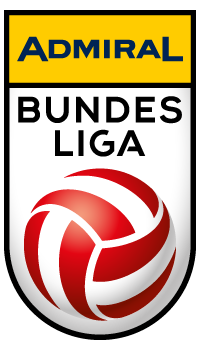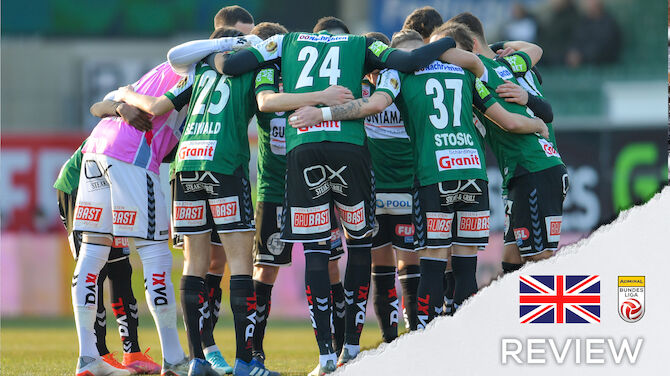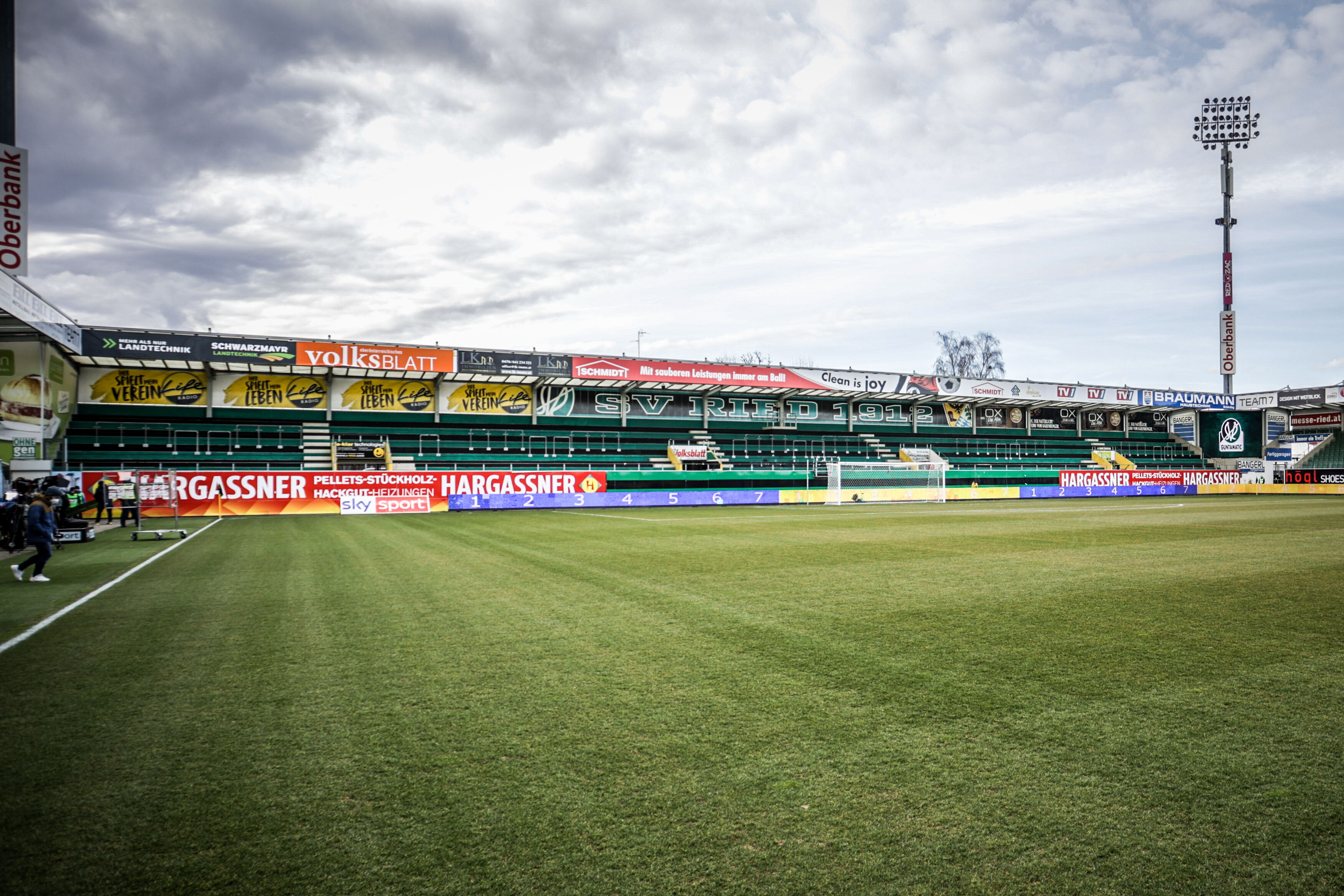Founded: 1912
Home ground: Josko Arena
Location: Ried, Upper Austria
Colours: Green/Black
Manager: Christian Heinle
Website: www.svried.at
The history:
Founded in 1912, shortly before the outbreak of the First World War, SV Ried spent much of their existence languishing in lower-league obscurity. But that all changed at the beginning of the 1990s, when two promotions in the space of five seasons carried the Vikings into the Bundesliga for the first time in their history. Since arriving at Austria’s top table, they have won the ÖFB-Cup on two occasions (1998 and 2011), finished as Bundesliga runners-up in 2006/07 and became winter champions in 2011 and 2012. Following their relegation at the end of 2016/17, Ried returned to the top tier three years later.
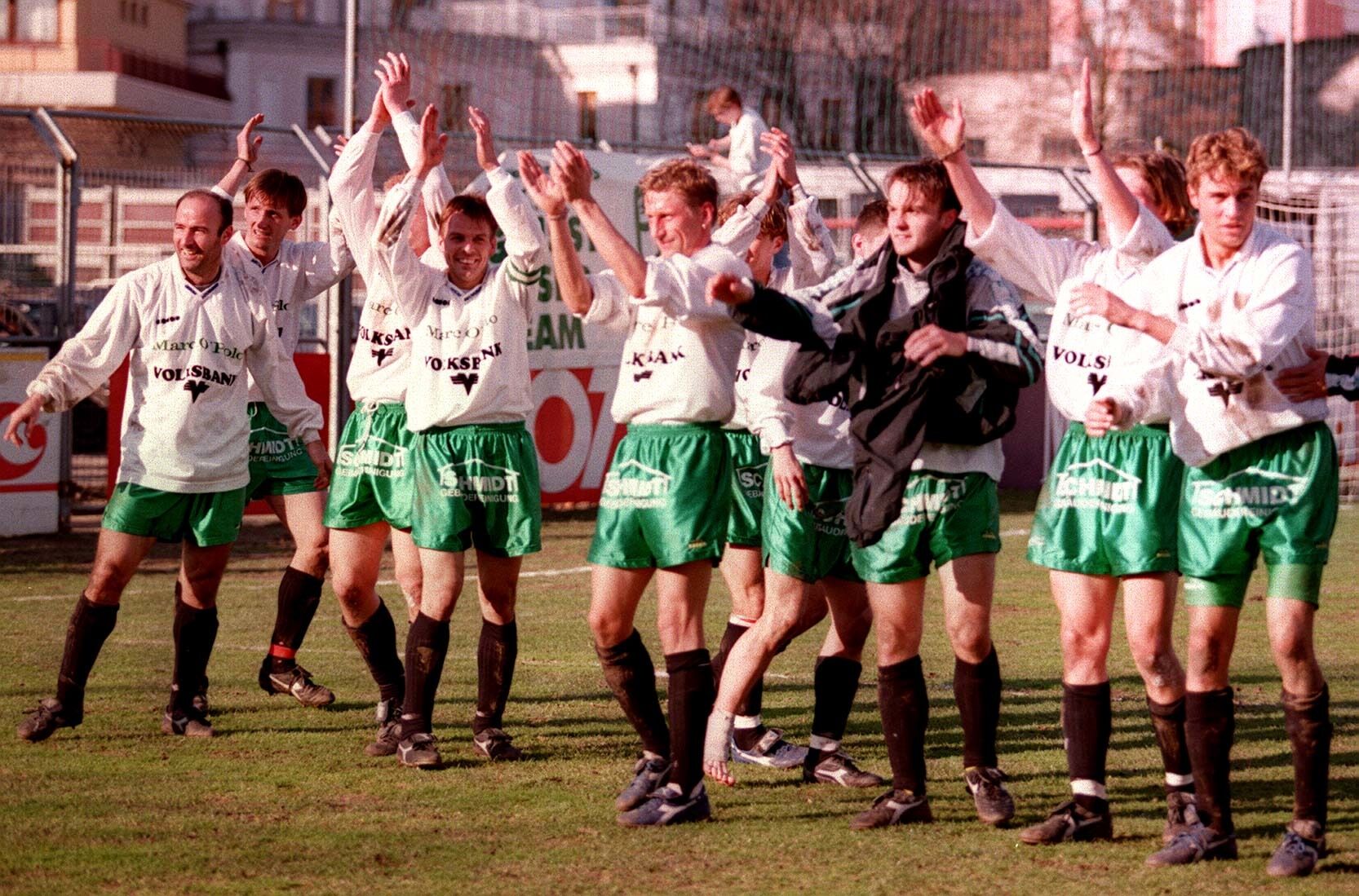
The Innviertel’s first football club
On 5 May 1912 – the same day the Austrian national team drew 1-1 with Hungary in the capital – a group of men gathered in a local guest house some 200 kilometres away to found Sportvereinigung Ried. Between 1922 and 1926, the first football club in the Innviertel and the fourth-oldest in Upper Austria (after LASK, Welser SC and SV Urfahr) claimed four consecutive 2. Klasse titles and were eventually promoted to the state’s top division, the 1. Klasse, in 1925/26. That was probably their most notable achievement in the interwar years, along with their victory in the 1933/34 Landespokal Oberösterreich (the Upper Austrian Cup).
While it is not possible to delve into the early history in great detail – a fire destroyed many of the documents and pictures compiled by the club historian Walter Schmid in May 1994 – we do know that the club endured a long road back to the Upper Austrian top tier. With Ried in the American zone, where baseball and basketball reigned supreme, it was not until the mid-1950s that the Vikings finally returned, although they were relegated four years later. But they finally made it back in 1975/76 and followed up their promotion by winning the newly launched Ligacup Oberösterreich (the Upper Austrian League Cup) the following season.
Three is the magic number
Fast-forward 15 years and you arrive at arguably the biggest turning point in Ried’s history: the Green & Blacks became 1. Landesliga champions in 1990/91 – the third time they had lifted the title – and were promoted to the second tier of Austrian football for the first time in their history. They did it in dramatic fashion too, only overtaking their closest title rivals Vorwärts Steyr on the final day of the campaign, before comfortably dispatching Flavia Solva 3-0 in their third attempt at the play-offs. Four years later, Ried successfully navigated their way through the 2. Bundesliga and were promoted to the country’s top flight.
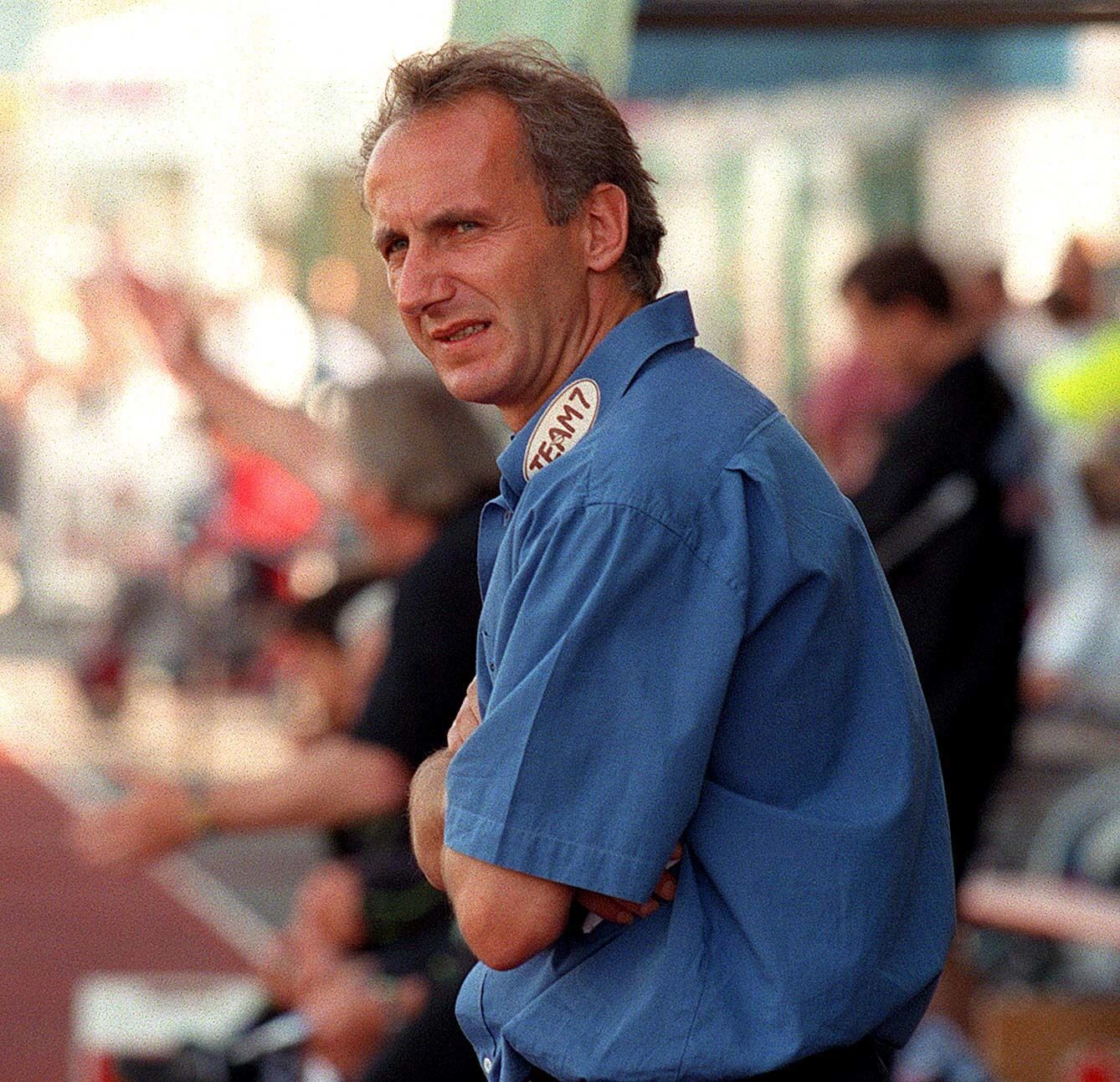
Vikings conquer the cup
With the legendary coach Klaus Roitinger, who had overseen both promotions, still in charge and the likes of record-appearance maker Oliver Glasner (571 matches) and record goalscorer Herwig Drechsel (119 goals) among the playing staff, Ried made a solid start to life in the Bundesliga and finished their debut campaign in seventh place, above the likes of Austria Salzburg – UEFA Cup finalists only two years earlier – and nine-time Austrian champions Admira Wacker. The club, which then changed its official name from SV Marco Polo Ried to SV Keli Ried in the off-season, followed that up with an eighth-place finish the following year.
The next season proved to be a history-maker and one of the best in the club’s history. Having again ended the season in eighth place, Ried went on a sensational ÖFB-Cup run that took them past the likes of First Vienna, Schwarz-Weiß Bregenz and Admira Wacker en route to their first-ever final against Bundesliga champions Sturm Graz. But the Vikings were not deterred by their underdog status and ran out 3-1 victors at the Gerhard-Hanappi-Stadion in Vienna to claim their first major silverware.
The Innviertel outfit did suffer a setback in the form of relegation at the close of 2002/03 season, going down after Casino Bregenz pulled off an unlikely final-day away victory against an Austria Vienna side that had already been crowned champions. But Ried returned two seasons later and recorded what remains their highest-ever placement in 2006/07 by finishing as Bundesliga runners-up, although they never came close to challenging for the title and ended up 19 points adrift of champions Red Bull Salzburg.
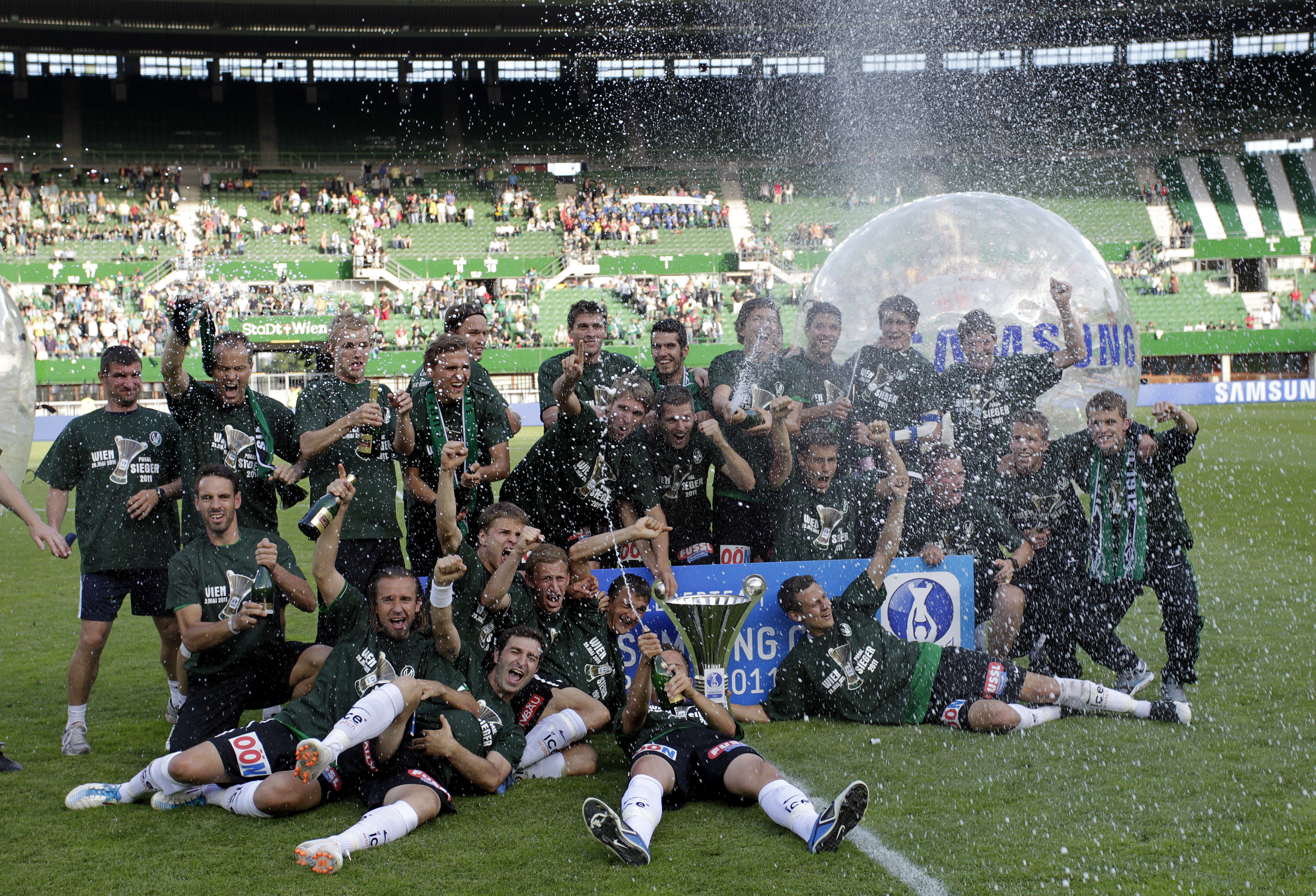
Exhilarating highs and painful lows
Following an eighth-place finish the season before, Ried went into the 2010/11 campaign with little in the way of expectations. But it proved to be the greatest season in their history to date. The Vikings shocked the Bundesliga by topping the table at the halfway point and earning themselves the title of winter champions. Though they fell away in the spring and ultimately finished fourth, they still ended the season on a high by winning their second ÖFB-Cup title. It was quite a run too, with regional rivals LASK, Sturm Graz and Rapid Vienna all eliminated before Lustenau were overcome in the final.
To prove it was not a fluke, Ried beat the two Vienna clubs to top spot in the table at the winter break the next season. But the years that followed were less kind and the Vikings dropped out of the division at the end of 2016/17 – particularly bad timing, as it was the same season that fellow Upper Austrians LASK came the other way and took their place in the top flight. But the Green & Blacks have the superior head-to-head record against their state neighbours: they have won 19 derbies and lost 15, while there have also been 12 draws.
Back to the top table
Having narrowly missed out on promotion in their first two seasons back in the second tier, it was another case of third time’s the charm. Ried, who had been locked in a promotion race with Austria Klagenfurt all season, went into the final day level on points with their rivals but with a +1 better goal difference. The Carinthians gave it their best effort to overhaul their goal difference deficit, smashing Wacker Innsbruck 6-1, only for Ried to demolish Floridsdorf 9-0 and hold on to top spot. The controversial end to that season led to a rule change and head-to-head now takes precedence over goal difference.
Ried finished the 2020/21 Bundesliga regular season in 11th, only two points above Admira in the drop zone, but underwent a resurgence and finished the campaign third in the Qualification Group. They are in similar terrain this term too, although their biggest success has been their ÖFB-Cup run. Thanks to wins against Sturm Graz, Austria Klagenfurt and Hartberg, the Vikings have reached the final and will take on serial winners Salzburg in the showpiece event on 1 May. They will certainly be the underdogs – but they are familiar with that role, and it is not beyond the realms of imagination that they could claim the trophy for the third time.
The stadium:
Like many current Bundesliga clubs, Ried have led a nomadic existence and played at five different grounds before settling long-term at Stadion der Stadt Ried in 1971. But it was clearly no longer fit for purpose by the turn of the millennium and, with a renovation of the existing ground making little sense from a technical or financial perspective, a decision was taken to build a new stadium. Constructed inside seven months, it was inaugurated with a game against Austria Lustenau on 19 October 2003.
The construction of the stadium, which cost €10.2 million in total and can hold 7,300 spectators, has coincided with the most successful era in Ried’s history. With no running track around the outside to ensure the proximity of the spectators to the pitch, one could make a case for it being the most atmospheric small ground in the Austrian Bundesliga. The stadium, whose name has changed several times over the years in line with sponsorship agreements, has been called the Josko Arena since 2018.
The team:
Ried have had six different coaches since their return to the Bundesliga in the summer of 2020 – more than any other Austrian top-flight club during that time period – and yet it still came as a surprise when Robert Ibertsberger was dismissed in mid-April, only a week after his charges had topped the Qualification Round. The 45-year-old, who had been in the role for only three and a half months, has since been replaced in the dugout by Christian Heinle, who takes charge for the second time this season.
The Vikings lost a lot of their attacking power in the summer, with star talent Marco Grüll opting to leave the Upper Austrian outfit to join record champions Rapid Vienna on a free transfer. He was followed out the door by forward Patrick Schmidt, whose loan from English club Barnsley was over, while key defender Kenny Boateng also departed for Portuguese islanders Santa Clara. In came a plethora of players recruited from the second tier and striker Seifedin Chabbi from Bundesliga rivals Hartberg.
Despite missing most of the last few months with injury, the prolific forward remained Ried’s top scorer until recently (six goals). He has since been overtaken by fellow attacker Ante Bajic (seven goals), while midfielder Leo Mikic has chipped in five goals. But the outstanding performer of the season has undoubtedly been midfielder Stefan Nutz. A creative outlet with a good eye for a pass, Nutz has played almost every match in the Bundesliga this term and has notched four goals and 12 assists.
Vocabulary
|
languish in lower-league obscurity |
in einer niedrigen Spielklasse sein |
|
top table |
oberste Spielklasse |
|
delve into something |
sich in etwas vertiefen |
|
reign supreme |
dominant sein |
|
not deterred |
nicht abgeschreckt |
|
underdog |
Außenseiter |
|
fluke |
Glücksfall |
|
third time is the charm |
aller guten Dinge sind drei |
|
head-to-head |
Direktvergleich |
|
no longer fit for purpose |
erfüllt seinen Zweck nicht mehr |
|
coincide |
sich überschneiden |
|
running track |
|
|
make a case for something |
Argumente für etwas liefern |
|
a plethora of |
eine Vielzahl von |
|
prolific |
erfolgreich |
|
chip in |
beitragen |
|
creative outlet |
kreativer Spieler |
Die Kollegen von "The Other Bundesliga" porträtieren in regelmäßigen Abständen die Klubs der Liga - auf Englisch mit der dazugehörigen Vokabelauswahl. In dieser Serie sind bisher folgende Klubporträts entstanden:SK Austria Klagenfurt, SK Rapid Wien, SK Sturm Graz, LASK, FK Austria Wien, RZ Pellets WAC, FC Red Bull Salzburg, WSG Tirol , FC Flyeralarm Admira TSV Egger Glas Hartberg
